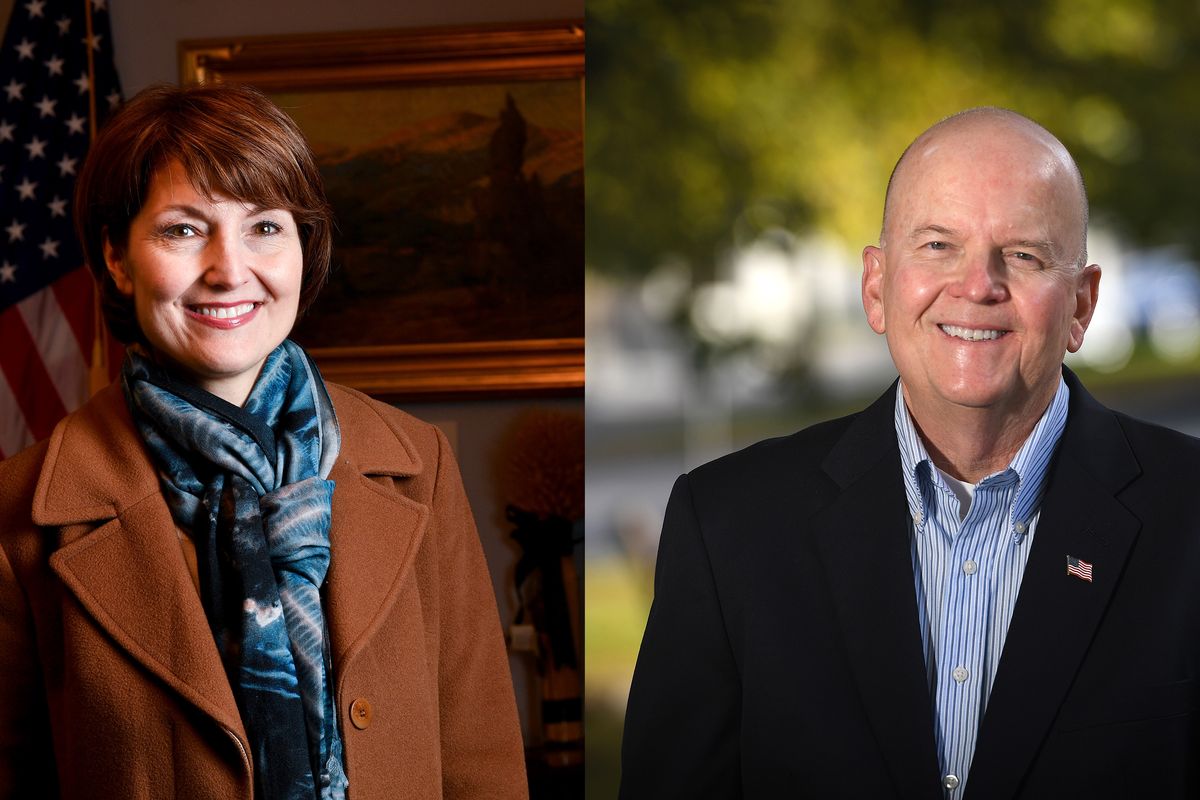Fundraising in Eastern Washington Congress race sees dip following high-profile 2018 contest

Fundraising in the contest for Eastern Washington’s seat in Congress is on pace to total about half of the record-breaking haul candidates acquired two years ago, even as high-profile races nationwide see spikes in giving during the global pandemic.
Incumbent Rep. Cathy McMorris Rodgers raised a little less than $4 million through Sept. 30, according to filings her campaign made this week with the Federal Election Commission. Her opponent, Democrat Dave Wilson, reported earnings of just more than $80,000 on his filings. Two years ago, the congresswoman and her then-Democratic opponent Lisa Brown ran nearly neck-and-neck in fundraising totals, with a final tally north of $10 million.
In a statement, the McMorris Rodgers campaign thanked donors for raising funds during “unprecedented times.”
“There is a tremendous amount of energy this year, which is reflected by the incredible fundraising we’re seeing. Eastern Washingtonians know that this is the most important election yet, and they know Cathy’s proven record of delivering results for the people she represents,” the campaign said in a statement, noting there was a pause in fundraising earlier this spring while asking supporters to donate to charities instead.
Wilson said he felt a contribution total of about $100,000 was appropriate for a five-month campaign that was launched in earnest due to concern with President Donald Trump’s handling of the coronavirus pandemic. Now, Wilson’s concerns have grown as Trump has suggested he may not honor the outcome of the election if he loses, statements that directly threaten democratic institutions, Wilson said.
McMorris Rodgers, Republicans and members of the media haven’t taken the president’s threats about democratic institutions seriously, Wilson argued.
Lesser fundraising totals have meant fewer ads on the airwaves in the district. TV spending through the end of September totaled nearly $3 million in the 2018 contest between McMorris Rodgers and Brown. Through September of this year, the campaigns reported spending a combined $500,000 on advertisements, with 95% of that coming from the incumbent congresswoman.
That’s well below the spending seen in several high-profile House and Senate campaigns, said Travis Ridout, the Thomas S. Foley Distinguished Professor of Government and Public Policy at Washington State University who specializes in campaigns and fundraising. Ridout is one of the directors of the Wesleyan Media Project, an academic-led effort to track political fundraising and spending since the 2010 election.
“The one thing I find interesting is just that the volume of TV ads is well above what we’ve seen in past years,” Ridout said of the 2020 campaign on the national level. “That’s suggesting that there’s plenty of money out there in 2020.”
A report released Thursday by the Wesleyan Media Project found that TV spots for House candidates, by volume, are up 6% over 2018, when they shattered records. They’re also up 154% over the last presidential election year in 2016.
The priciest contest in the United States is the south Florida race between U.S. Rep. Debbie Mucarsel-Powell and her Republican challenger, Carlos Gimenez. In that race, $5.4 million has been spent in television advertising since Sept. 28, according to the Wesleyan report.
In short, the change in fundraising and spending levels in Eastern Washington isn’t likely driven by any effects of the coronavirus pandemic on giving, but rather the perceived competitiveness of the race, Ridout said.
“It seems like Democrats threw everything they could against her in 2018, and she still won,” Ridout said. “I wouldn’t say handily, but this time around they don’t have the well-known candidate.”
Brown’s campaign presence is still being felt in 2020. Her campaign gave a $2,000 contribution to Wilson, one of 15 individual gifts to his campaign totaling more than $1,000. McMorris Rodgers’ campaign reports 517 such contributions, 220 of which are from individuals. The rest came from political action committees, organizations or other candidates for office.
Ballots are due to the election office in Washington by 8 p.m. Nov. 3.